STADIO Higher Education offers a Bridging Programme in Thesis Success to equip and support students who aim to enrol for doctorate degrees. The programme is open to all prospective doctoral students and not limited to students who wish to enrol for the current STADIO doctoral programmes.
As a registered higher education institution, STADIO has the core vision of widening access to higher education and making a differentiating contribution to academic empowerment in Southern Africa.
The National Development Plan 2030 envisages better throughput and outputs from the higher education sector, and specifically refers to a target of more than 100 doctoral graduates per million persons per year by 2030. The South African government has ambitious plans for doctoral education. The aim is to increase doctoral degree output to 5,000 doctorates annually by 2030. In 2013, the figure stood at 2,051; by 2019 it was up to 3,445. It also wants 75% of all academics employed at universities to hold a PhD by 2030. In 2019, this figure was just 46%.
STADIO took up on the challenge and received accreditation for its Doctor of Management and Doctor of Policing programmes and enrolled its first doctoral students in 2021 after a thorough selection process.
Through this sifting process, it became clear that there are many students with the potential to complete their doctorate, but who do not have the required skills and methodological knowledge to enrol for a Doctoral degree. The six-month Bridging Programme in Thesis Success meets this need. The first online offering commenced in May 2021, under the auspices of the Institute of Post-Graduate Studies and Research at STADIO.
The main target group is students who have completed a master’s degree, but who have either been turned down after applying for a doctorate or feel that they are not ready to write a full doctoral thesis. Satisfactory completion of the Bridging Programme in Thesis Success can greatly enhance any student’s chance to gain admission to a doctoral programme at any university.
This programme offers more than the standard postgraduate methodology training. Full tutorial support is provided online. After completing the course students will:
-
Have clarity on the topic, and the importance and broad methodological approach of their envisaged doctoral thesis.
-
Understand how to position their thesis within a broad professional and scientific context.
-
Be able to structure a thesis logically and be cognisant of the methodological and ethical requirements of scientific research.
-
Be empowered on how to build and manage a functional relationship with their supervisor and receive advanced guidance on academic writing.
The Bridging Programme in Thesis Success is presented by an eminent postgraduate supervisor and research methodologist, Professor Neels van Heerden, who has a wide experience in the higher education sector in terms of:
-
Publishing
-
Supervising theses and dissertations.
-
Providing support to novice researchers, newly appointed academics, and postgraduate students in terms of formulating all facets of research proposals, including selecting topics; formulating working titles, problem statements, research objectives and questions; and selecting the most appropriate methods.
-
Identifying and addressing research topics that need to be clarified to novice researchers, newly appointed academics, and postgraduate students.
-
Developing new courses/adapting current research methodology courses on undergraduate, postgraduate, and masters’ level at any higher learning institution.
-
Developing web sites to provide research guidance to novice researchers, newly appointed academics,.
-
Providing tutorship on bridging the gap between masters’ and doctoral level.
Provide upskilling opportunities to experienced supervisors, researchers, and academics
The South African Council on Higher Education recently released a report (https://www.che.ac.za/sites/default/files/inline-files/CHE%20Doctoral%20Degrees%20National%20Reporte.pdf.) on its key findings from a review of doctoral education. It states:
- One of the key requirements for a university to produce PhD graduates is to address the supervision capacity by developing emerging supervisors. There is clearly a need for additional supervisory capacity across the national system, and programmes for training supervisors are not properly in place at many universities.
- An independent study (Motshoane, P. (2022). The mechanisms conditioning doctoral supervision development in public universities across South Africa.” Unpublished PhD thesis. Rhodes University.) (https://commons.ru.ac.za/vital/access/manager/Repository/vital:49980) revealed that emerging supervisors were often simply thrown into the deep end with no development or support. Where professional development was available, it was often presented by facilitators without supervision experience.
STADIO aims to plug the gap in supervisory capacity and the demand to increase doctoral degree output. Professor van Heerden is concerned that students might be turned away from pursuing a doctoral degree as the proposal is rejected by inexperienced administrators or panel members who lack supervising experience. The Bridging Programme in Thesis Success is also open to novice supervisors and newly appointed academics who wants to construct research proposals for non-degree purposes and/or to gain upskilled knowledge on how to co-supervise master’s and doctoral student. Depending on the level of interest, a Supervision Bridging Programme is in a conceptual stage.
This Programme will run parallel to the Bridging Programme in Thesis Success, where supervisors an students can be involved in a partnership.
-
Admission requirements: A qualification at SAQA Level 9 (master’s degree)
-
Certification: Students who successfully complete the course receive a Certificate of Competence
-
Fee: R
-
Mode of delivery: On-line
Administrative enquiries: Pamela Makoanyane; phone 0 11 662 1444 | email [email protected]
Academic enquiries: Prof CH (Neels) van Heerden 083 40153541 | email: [email protected]

